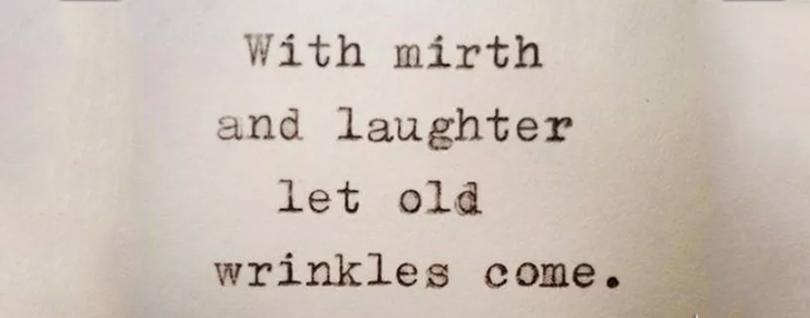
By Roadmap Top Tier Writer Terri Viani
“Don't lead with the labia jokes.” That was the advice I got from a friend as I was about to start pitching my TV pilot, Hot Flash!. Outwardly I nodded and agreed with her, given that the majority of people I'd be pitching to were youngish and male but Hot Flash! is a menopause-themed comedy. Talking about women's bodies is sort of the point.
What's a perimenopausal screenwriter to do?
Well if you're me, you just determine to show up exactly as you are with exactly what you've got.
Four years ago, when I decided to get back into screenwriting after many years away, this same friend - who's a bit of a twerp, now that I think about it – advised me to “forget it, you're too old, you're a woman, you're writing about middle-aged women, it'll never happen.” Guilty as charged on the woman part, but too old? I was only 44! Sure, my knees squeaked more than they used to but I could still develop ideas and type them in script format, thank you very much, no need to fluff the pillows at Shady Acres Retirement in preparation for my arrival.
Other people offered similar warnings, and a general caution that I needed to “be realistic.” The negativity wormed its way into my brain: What if the doom and gloom brigade was right, and my age an insurmountable barrier to re-entry, never mind success? And were guys really so delicate that any mention of women's bodies outside the typical T&A treatment might have them collapsing in shock? Should I abandon writing about the forty-something female experience altogether?
Maybe a spec script for Fuller House would be more efficacious.
But the more I thought about it the more I realized there was but one choice, and that was to go forward as planned. Age is a circumstance, not a moral failing, and I was unwilling to soften myself or my content and contribute to the idea that a woman's age and corresponding body are somehow shameful.
So when I pitched Hot Flash!, I put the fact that it was based on my own perimenopausal experiences right upfront. I put the squirmier – insert quote fingers around that word - aspect of women's changing bodies out there as well, talking about irregular periods, weak bladders, belly fat, hot flashes, and mood swings. I threw down on the menopause/aging front, and silently dared anyone to dislike it: Put 'em up young punks, I'll show you who's too old (also, you kids get off my lawn).
But a funny thing happened on the way to the script fight.
Nothing. Not one damn thing.
No one seemed in the least bit put off by my age or my content.
In fact, the guys – it's been all guys – were interested. The unconventional concept of a menopause-based show intrigued them.
More than one said, “We need more stories like this from women.”
And I think they meant it – in the moment.
But the statistics don't lie. The Guardian on-line recently analyzed writer diversity on 2016 Emmy-nominated shows, and found that women counted for only 23.2% of writing credits. Downton Abbey and Game of Thrones had no women writing for them at all in 2016. The statistics for older women writers are even more abysmal.
So where's the disconnect between people claiming they want womencentered content and more women involved in content creation in general, and the fact that it seems so difficult to make those things happen?
I think most of the time it's a crime of habit, not acrimony. If all you see around you are people who look, think, and create like you do, that gets imprinted on your brain as the normal state of affairs, and chances are you'll repeat the pattern in your own hiring choices, in your own choosing of whose stories make it past the gate. You probably won't even be aware you're doing it.
Anyone outside that baseline norm will seem unusual, risky.
Unusual/risky = we'll lose money = we're gonna pass on that content, thanks.
In the September 2016 issue of Fortune magazine, The Shield and Walking Dead showrunner Glenn Mazzara talks about looking around The Shield writers's room and realizing it was mostly people just like him. “I looked around the writers' room and a lot of my fellow writers were white, middle-aged guys...And we were writing for a very diverse cast,” Mazzara says in the article. Mazzara goes on to say that this realization sparked a commitment to diversity in his own writing rooms. And that's great. Gatekeepers need to start swinging open those gates.
But the system is too big, the lack of women too entrenched, for change to come from just one corner. While the gates swing open from inside, women need to be storming them from outside. We need to advocate for ourselves, and one of the most important things we can do, especially writers on the other side of forty-five, is show up.
Show up at the writing conference with your creative, public voice. Show up at the festival with your content. Show up at the workshop with your plans, the meet and greet with your ambition. Get involved with companies like Roadmap Writers that are committed to getting diverse writer faces in front of content custodians. Get in the room. Make yourself not unusual.
But be you when you're there.
Don't dim your shine – or your content.
Lead with the labia jokes.
The world will adjust.